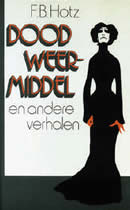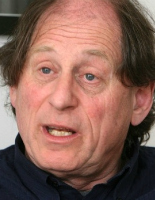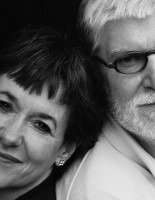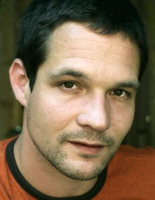
F.B. Hotz - Dead Means of Defense
Over a period of twenty years F.B. Hotz produced an outstanding body of work that occupies a prominent place in Dutch letters. In a crystal-clear style, Hotz evokes a world of flamboyant layabouts, door-todoor salesmen with families to support, and jazz musicians living only for their music.
The grim settings of his wonderful tales of the years between the world wars are softened by romance, by music, or by the glory of taking a blue tram to the sea. His prose is swathed in mists of melancholy. No matter in which era Hotz places his characters, his style and tone effortlessly raise them above their surroundings to become utterly timeless.
His stories often deal with solitary men, whose dreams are dashed by fate, grasping women, and a hostile world. The title story of Dead Means of Defense concerns an ill-tempered guard of a piece of military defense equipment of the French period, now totally redundant. He is trapped not only in his pointless job but in an extremely bad marriage. Through F.B. Hotz’s wistful, evocative prose glimmers a bygone world of hope and despair, cunning and guile.
Biography
F.B. Hotz (1922-2000) was a trombonist in a jazz group. In the late 1950s he stopped making music, anxious to avoid becoming the oldest swinger in town. Hotz labored for twenty years at improving his writing style yet remained deeply pessimistic. When finally, after much egging on by friends, he sent the story The Tram Race to a literary magazine, it caused enormous excitement among the editorial team: never before had they seen such an accomplished debut. Twenty years later, in 1996, Hotz laid down his pen. ‘A writer has to know when to stop,’ was his reasoning. He was awarded the P.C. Hooft Prize, the most prestigious literary award in the Netherlands.
Quotes
- ‘Very few writers have published such a magnificent volume of collected works just twenty years after their debut. […] Unique in every way.’ – Trouw
- ‘Hotz is a master of the intensely private conversation punctuated by silences, of which the participants, unlike the reader, fail to see the humorous side.’ – Het Parool





